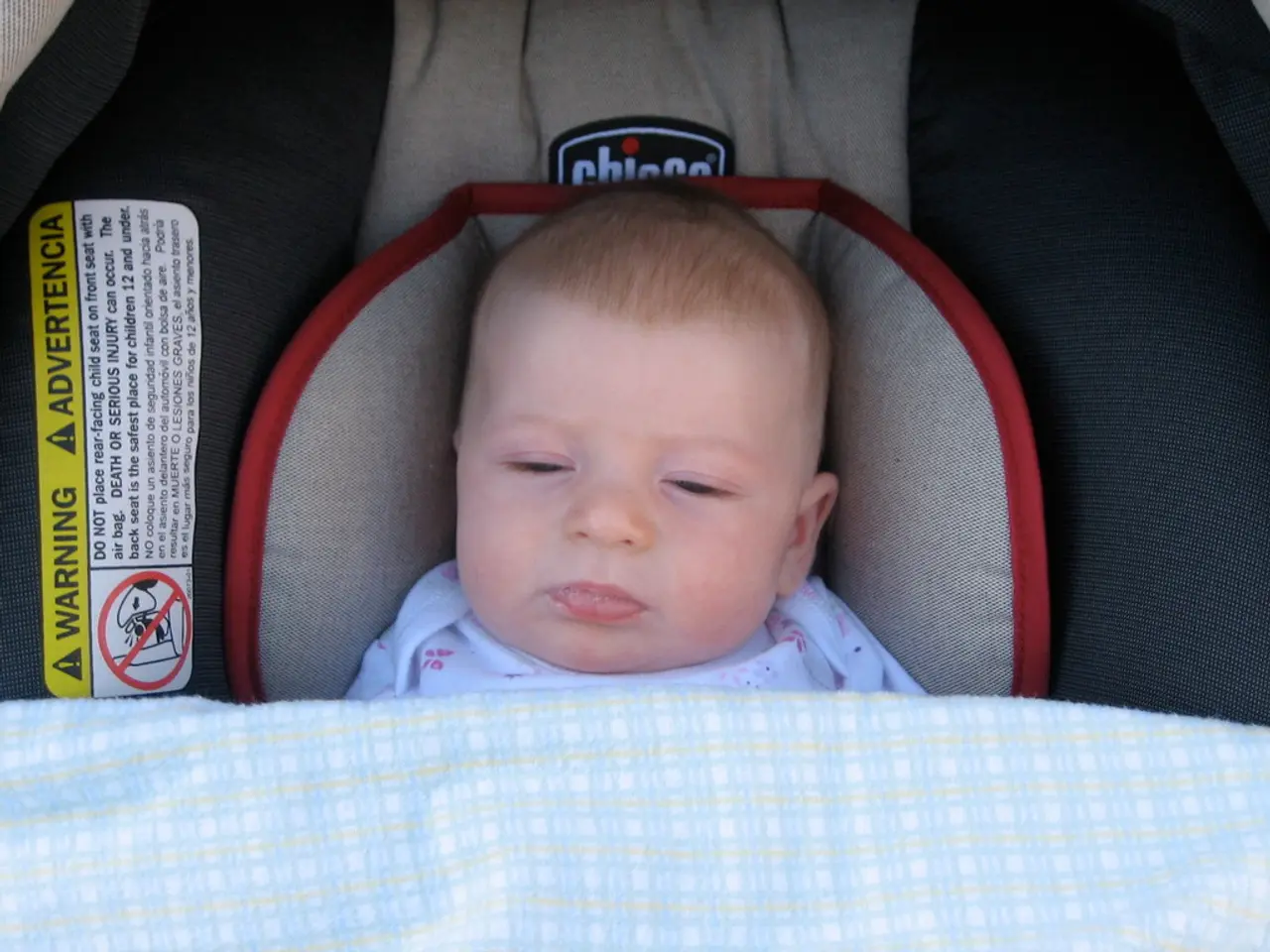Safety Measures for Infants in Cars: A Handbook for Nigerian Parents
In Nigeria, the safety of babies in vehicles is a top priority, with car seat laws and regulations playing a significant role. While detailed national regulations may not be as extensive as in regions like the EU or UK, they primarily focus on enforcing the use of appropriate child restraint systems [1][5].
These regulations align with international standards such as UNECE R44 or R129, which require the use of certified car seats offering crash protection for infants and young children. By securing them properly and absorbing crash forces, these seats help prevent injuries during car journeys [4][5].
Nigerian authorities emphasise vehicle safety measures, including enforcing the Motor Vehicle Act and vehicle safety rules. However, the mandated use of child car seats is still developing compared to more regulated regions. To bridge this gap, the adoption and enforcement of child safety seat laws may rely on adopting global best practices [1].
One such practice is the usage of approved car seats similar to those certified to European norms, which rigorously reduce injury risk for infants and toddlers. It's essential to remember that car seats are designed to accommodate specific age groups, ensuring optimal protection for a baby at each stage of their development [1].
When selecting a car seat, it's crucial to ensure it's compatible with the vehicle. It's also advisable to avoid placing the car seat on the front passenger seat, especially if it has airbags. Instead, the backseat of the car is the safest spot for a car seat [1].
Parenting magazines and websites frequently publish articles and tips on the latest car safety practices for babies. It's important to ensure that all caregivers and relatives who will be transporting the baby are familiar with these rules. Regular reminders about car safety measures can help maintain consistency [1].
Do not use bulky clothing or blankets under the harness straps, as they can compromise safety. The car seat should be easy to install and use, with clear instructions. Regularly check the car seat for any signs of wear and tear and replace it if necessary [1].
Local hospitals and healthcare providers often offer classes or consultations specifically focused on car safety for babies. It's also recommended to consider the reputation of the brand and read reviews from other parents to gain insights into the quality and performance of the car seat [1].
Essential safety features for car seats include a five-point harness, side-impact protection, and energy-absorbing materials. Do not use accessories that are not approved by the car seat manufacturer, and regularly inspect and maintain the car seat, ensuring that all buckles, straps, and harnesses are in good working condition [1].
Car seats have an expiration date, usually around six to ten years. Do not use second-hand or expired car seats. The National Highway Traffic Safety Administration (NHTSA) website provides comprehensive guidelines and information on car seat safety [1].
In conclusion, while Nigerian car seat safety regulations may not be as detailed as in other regions, they are designed to ensure baby safety by promoting the use of crash-tested, certified child restraint systems that stabilise and protect babies in collisions, aligning with international safety standards [1][5]. Efforts to increase awareness and enforcement of such laws further enhance safety during journeys.
- Parents in Nigeria should prioritize the safety of their toddlers and children while traveling, adhering to car seat laws and regulations in place.
- To minimize injuries during car journeys, it's essential to use certified car seats for infants and young kids that conform to international standards like UNECE R44 or R129.
- When choosing a car seat, families should consider factors such as vehicle compatibility, backseat placement, and the car seat's expiration date.
- To stay informed about the latest car safety practices for babies, parents can turn to parenting magazines, websites, or even consult local hospitals and healthcare providers.
- Maintaining the health and wellness of kids involves ensuring the proper usage and maintenance of car seats, with regular inspections for signs of wear and tear, as well as adhering to essential safety features like a five-point harness, side-impact protection, and energy-absorbing materials.




